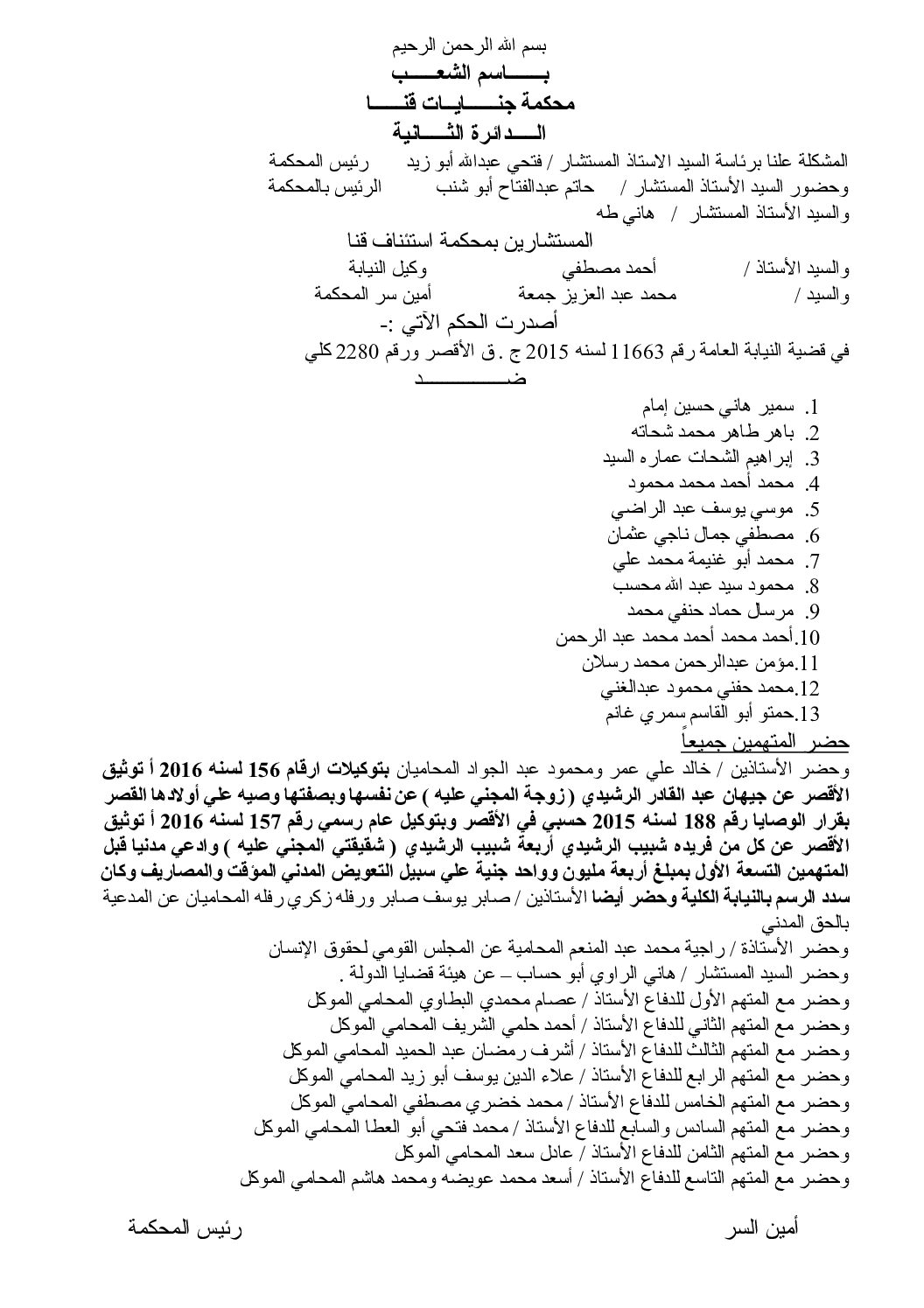Criminal justice| ECESR Appeals against Committing Minor for Military Court under “Protecting Facilities” Law, Demands Constitutional Appeal

ECESR asks permission to appeal against the constitutionality of the presidential decree for “protecting installations”
ECESR Lawyers brought an appeal before the State Council against committing a minor for a military court in accordance with the law of “protecting Public Facilities”, which is opposes laws and Egyptian Constitution. The constitution provides that the defendant be brought before a civilian judge. Therefore, the Center asked for permission to appeal against the constitutionality of this decision.
Committing opposition protesters for military courts is not the first incident of its kind. It occurred many times during the rule of the Supreme Council of the Armed Forces (SCAF), and, in response, the Center has appealed against such cases more than once. But the interesting thing, which motivated the Center to file such an appeal, is that these decisions and laws issued in complete absence of an elected parliament during the reign of the interim President Adly Mansour or President-elect Abdel Fattah al-Sisi are inconsistent with the most basic rights adopted by the 2014 Constitution. Therefore, these decisions which require appealing against cannot be considered the origin and the Constitution the branch. Furthermore, they are in violation of the international human rights instruments ratified by Egypt and became effective by the force of law, as well as the verdicts of the Constitutional Court and the Court of Administrative Justice.
Case Background
The lawsuit dates back to August 12, 2014 when the appellant’s son (19 Y) was arrested in Sadat City, Menoufia governorate, and then taken to the police station and an official report was written down. On the next day he was brought before the Prosecutor’s office, who charged him and others with: joining a banned group; illegal assembly; demonstrating without a prior notice; using force, violence and the threat of using them; chanting anti-Army slogans; vandalizing a police vehicle, which is a public property.
After cross examining the minor and others, the prosecutor remanded him in custody, then the case papers were referred to Appeal Prosecution that, in turn, filed the case to the military prosecution, which opened investigations on November 25, 2014. After that they were referred to the military criminal court on November 30 to enroll the case in the Military Court. The decision is based on the presidential decree No. 136/2014, issued on October 27, 2014, on securing and protecting public facilities and regarding them as military installations.
This lawsuit joins other lawsuits to appeal against this law, which extensively widened the reasons under which civilians are taken away from their natural judge, and increased the powers of the military courts at the expense of civil courts, which are the original entities entitled with issuing verdicts and sentences.
- No. 19 361/ 69 Judicially before the first circuit of the State Council, duly authorized from the minor’s father
- No. 13748/2014 Sadat Misdemeanors
- No. 2/2014 Tanta Appeal jurisdiction, according to Presidential Decree 136/2014 Articles 1 and 2
- Case No. 319 of 2014 Criminal Court of Northern Cairo
- Haykstep Neighborhood, Criminal Circuit of northern military region

